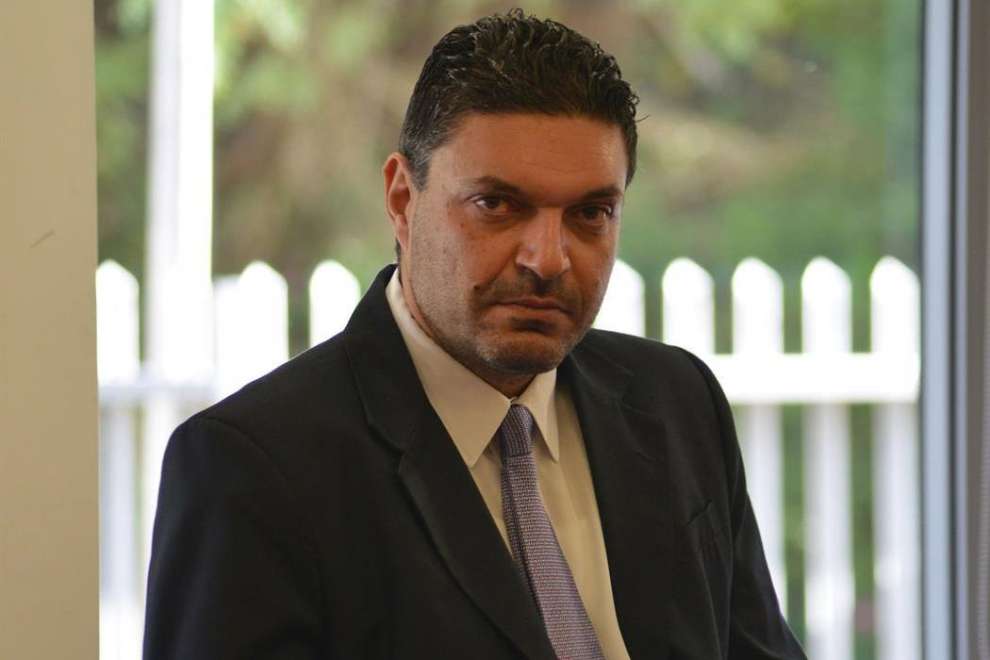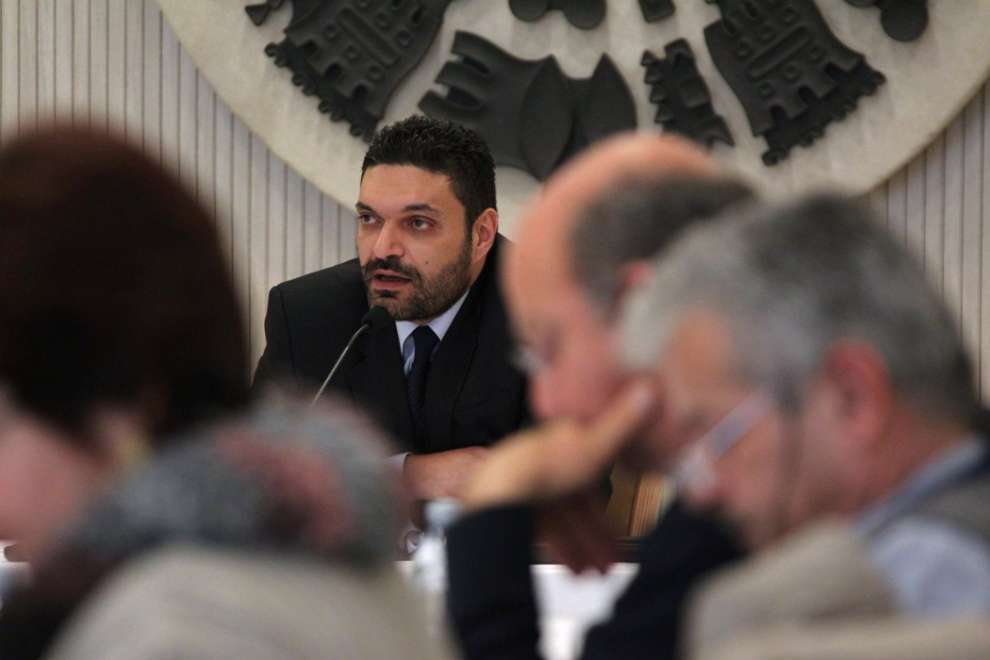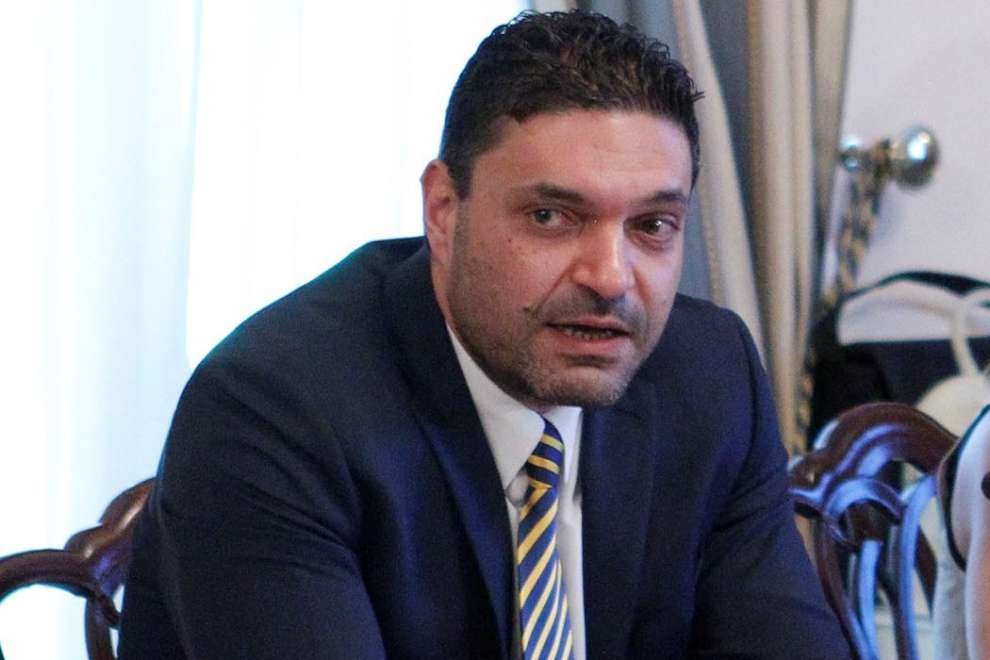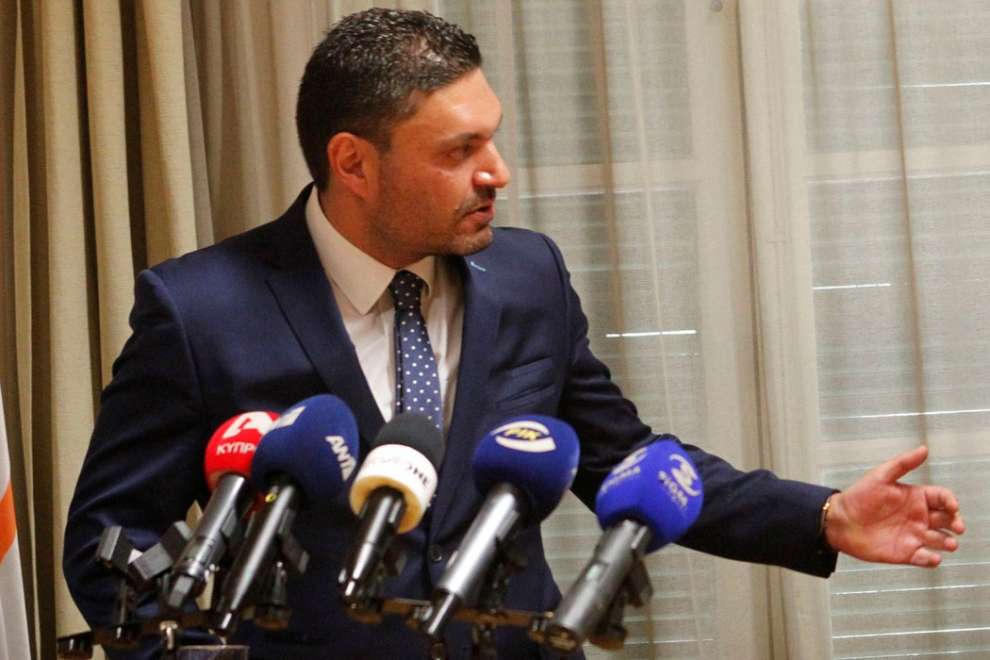Petrides for Deputy Ministry for Tourism
“Voting down the bill would portray another dismal picture for the political establishment”
Tourism is the heavy industry of Cyprus. According to some assessments, until 2030 tourist arrivals could reach the 6 mn per year.
In an effort to modernise the existing legislation on tourism, the Minister of Interior, Constantinos Petrides, as the former Deputy Minister to the President, suggested the establishment of a Deputy Ministry for Tourism.
Following the postponement of the voting on the relevant bill by the MPs, CyprusAlive asked the Minister of Interior about the most important issues, with regard to the further development of our tourism industry and the measures the state intends to take in this respect.

“It would be so unfortunate for Cyprus to vote down a bill fully endorsed by the EU and international experts, and also all the stakeholders. Voting down the bill would portray another dismal picture for the political establishment of Cyprus”
Q: During the previous year there has been much debate on the modernisation of the legislation concerning the tourism industry of Cyprus, but the House of Representatives has not shared your vision to establish a Deputy Ministry for tourism. What has gone wrong in the Parliament?
A: The governance of the tourist sector is highly anachronistic. This is not my own claim, but it is also the conclusion of the European Union, the IMF, and other international experts. Our proposal is based on those recommendations. It is a pity and an oxymoron that international experts do see the potential of the tourism sector and urge us to take action, but locally there is hesitation to move forward.
Having talked with the party leaders, I have not identified any real concerns for the new governance we propose. On the contrary, there was a general acceptance that the current system has to be modernised through the establishment of the Deputy Ministry. Let me also remind you that the bill has the universal support of all stakeholders, and there is even an agreement with the CTO’s staff regarding the labour issues.
It would be so unfortunate for Cyprus to vote down a bill fully endorsed by the EU and international experts, and also all the stakeholders. Voting down the bill would portray another dismal picture for the political establishment of Cyprus. Isn’t tourism worth its own, exclusive member of the government? Isn’t tourism a priority? Things are simple.

“We are the only tourist country with no Ministry or Deputy Ministry for Tourism. Competences are scattered and fragmented, while the CTO is a semigovernmental organization, whose primary function is the promotion of the tourism product”
Q: What makes the establishment of a Deputy Ministry for Tourism so important? What are the competences of such an action?
A: A Deputy Ministry under the Presidency is the only way to push forward a holistic and comprehensive tourist strategy. We are the only tourist country with no Ministry or Deputy Ministry for Tourism. Competences are scattered and fragmented, while the CTO is a semigovernmental organization, whose primary function is the promotion of the tourism product. It is incapable, legally and institutionally, to design, promote and implement a holistic strategy that has to do with issues like enterpreneurhip, infrastructure, beaches, planning, transport, tax issues etc.
The central government is for once ready to assume its responsibilities for such an important sector of the economy and put an end to little fragmented kingdoms, which are unable to push forward a modern policy.

“I do not think there is a single political party that does not recognize the importance of the bill. I want to be optimistic that the bill will go through”
Q: As the relevant bill was dismissed by the MPs, what will be your next steps?
A: Let me clarify that the bill has not been dismissed. It has been postponed for after the summer. You see, in Cyprus changes take more time to happen, sometimes due to bureaucratic issues, sometimes due to lack of political will or fear to change or simply because a small minority of people, who consider the reform as a potential threat to their own narrow interests, object and influence policy makers.
I do not think there is a single political party that does not recognize the importance of the bill. I want to be optimistic that the bill will go through.

“Based on our National Tourism Strategy that was conducted by worldwide experts on tourism, Cyprus, until 2030, can attract over 4 mn premium tourists, 40 % of which, will visit Cyprus in the period from November to March”
Q: For the period of January-June 2017 arrivals of tourists totaled 1,46 mn, compared to 1,25 mn in the corresponding period of 2016, recording an increase of 16,6%. Moreover, for the period of January-April 2017 the revenue from tourism is estimated at €357,7 mn, compared to €285,5 mn in the corresponding period of 2016, recording an increase of 25,3%. According to your opinion, what are the prospects for the further development of our tourism product?
A: The prospects are large and are largely untapped. Of course, that increase followed a long period of decreases or stagnation of tourist arrivals, at a time when our competitors were recording big increases.
The increase we achieved is attributed to our efforts through a series of actions like the open skies policies, agreements with tourist agents, the building incentives to the hotels etc. Our attention, however, should not only focus on increasing arrivals but also on attracting “premium tourists”. The per tourist spending in Cyprus is relatively low, and there is a necessity to upgrade the tourism product, in order to attract more high value tourists.
Based on our National Tourism Strategy that was conducted by worldwide experts on tourism, Cyprus, until 2030, can attract over 4 mn premium tourists, 40 % of which, will visit Cyprus in the period from November to March. And all that, in a more sustainable and environmentally friendly manner. However, to have the National Tourism Strategy implemented, as proposed by our experts, there must be effective governance with the mandate to push forward the necessary reforms.

“There is no integrated beach management. Relevant policies are scattered across four ministries including my own, nine different governmental organisations, an anachronistic ‘Central Beach Committee’ and a big number of laws that are often conflicting”
Q: There is another major issue you should deal with; the management of the beaches. What is the current situation and how the conferral of management to Deputy Ministry for Tourism could help resolve the problem?
A: There is no integrated beach management. Relevant policies are scattered across four ministries including my own, nine different governmental organisations, an anachronistic “Central Beach Committee” and a big number of laws that are often conflicting. The only common characteristic of these bodies is that none has any expertise on Integrated Coastal Management or tourism. Remnants of colonialism, before tourism was even a concept.
We propose the Deputy Ministry for Tourism to take over the competency and the mandate, and to conduct a big Integrated Coastal Management study, which in turn should lead to policy action.


 English
English
 Ελληνικά
Ελληνικά Русский
Русский
 Posted by
Dimitris Scribas
Posted by
Dimitris Scribas






